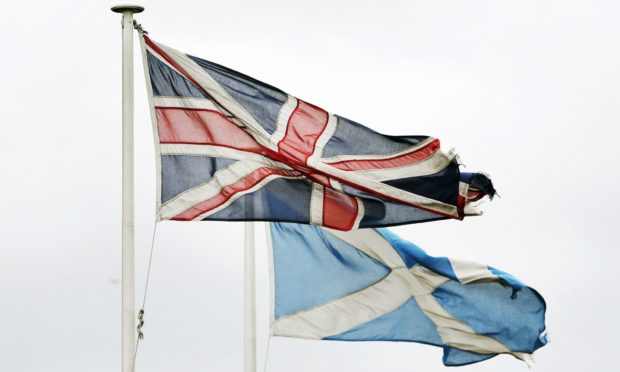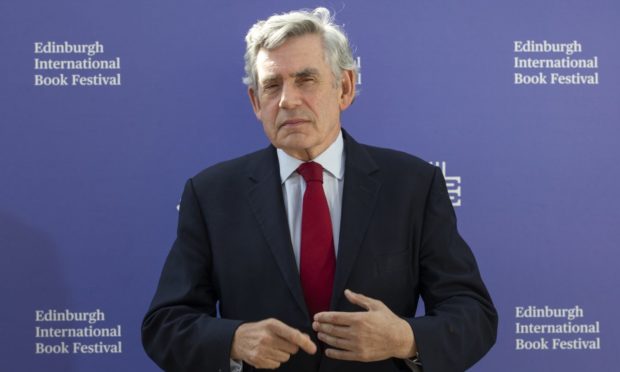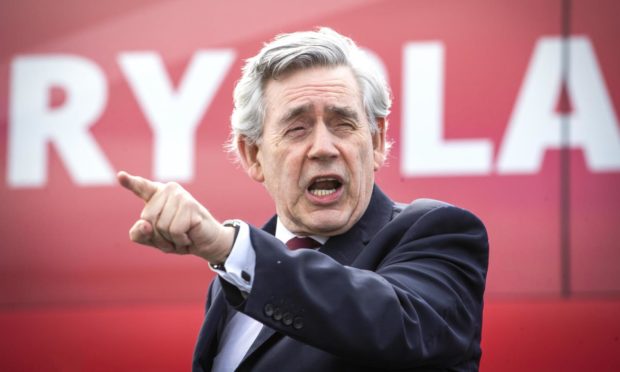Gordon Brown has insisted he is not seeking to recreate Better Together with a new campaign that aims to speak up for a huge group of Scots he claims are being ignored by both Holyrood and Westminster.
The former Labour prime minister said he could not simply “remain silent” in the wake of the Holyrood election result and a fresh row about a second independence referendum, as he revealed his Our Scottish Future think-tank would become a campaign movement from now on.
He said it would speak for the 40% of Scots, who he describes as “Middle Scotland”, and who share a desire to retain some kind of connection to Britain, as well as increasing co-operation between the two governments.
As part of the move, Mr Brown’s organisation intends to set up commissions on health, poverty, the environment and jobs, and to publish a Manifesto for Middle Scotland.
The former Kirkcaldy and Cowdenbeath MP pointed to polling that showed Scotland was not split down the middle between Yes and No voters, in the way other studies suggest.
According to the research, just more than 30% of Scots are ideologically-committed nationalists, while about the same number were equally-committed unionists.
Mr Brown said the far bigger group was the 40% in the middle, and that was who he was speaking for.
“I can’t remain silent, because there is a group of people in Scotland who need their views expressed and their aspirations understood, and I don’t think the British Government or the Scottish Government is listening to this group,” he said.
“But we’re not trying to do anything other than put the case for this group.
“We’re not trying to be a new Better Together, we’re not trying to be a new political party, we’re not trying to take over from people who are doing good jobs at the moment – I’m not interested in leadership of anything – I just want to get these views across.”
It’s more the people who are in the middle of this debate.”
Gordon Brown
Speaking to us on the day he unveiled the new campaign, Mr Brown said: “Middle Scotland is not the middle of Scotland, so it has got plenty of Courier and Press and Journal readers, I can tell you.
“It’s actually the people who are neither committed unionists, in the sense that they will never change their mind or will always be in the same position, and people who are not committed nationalists, who are dyed in the wool and will not change their mind.
“It’s more the people who are in the middle of this debate.
“They are people who feel more Scottish than British. They feel that if they had to make a choice between Scotland and Britain they would probably choose Scotland but they don’t feel that they should have to make that choice.
“And they can be Scottish at whatever level, and hold some British connections, and don’t feel like they have to make the choice of choosing Scotland over Britain, that they want both.”

Mr Brown said the organisation’s polling showed 73% of Scots favoured more and better cooperation between Scotland and the UK on areas that affect their lives, while 68% believed that a more productive and collaborative relationship between the governments would be good for Scotland, and 66% said there was a need for greater alignment of policy and messaging on key issues between the two governments.
It is calling for a UK-wide constitutional inquiry, and the creation of “a permanent forum for joint working between the nations and regions”, that would meet regularly.
The campaign’s health commission is to be chaired by Professor David Kerr, one of the UK’s leading cancer specialists, while its economy commission would be led by Glasgow University professor Ronald Macdonald and former Scottish Conservatives spin doctor Eddie Barnes.
The environment commission, meanwhile, is to be headed by Robin Harper, the former leader of the Scottish Greens.
Look, I think people want change but I think the only way of getting change is that people get around the table, the British and Scottish governments, and sort things out.”
Gordon Brown
Asked whether there was a mandate for a second referendum after the pro-independence parties emerged from the election with a majority of MSPs, Mr Brown said: “Look, I think people want change but I think the only way of getting change is that people get around the table, the British and Scottish governments, and sort things out.
“The interesting thing is, we’ve got quite a long time to go here. You’ve got the virus to be solved, you’ve got the economic crisis to be solved, and what I really think Boris Johnson should do is set up an inquiry into the constitution, create a permanent forum.
“And I think, also, the SNP have got a duty to explain what their plans are.”
He added: “I think what people will take out of the last few days is that given we’re going to be dealing with the crisis for the next few months or more, then we really ought to think through some of these big issues that have never been properly explained or the information is not yet available.
“I think it’s really important we do that.”

